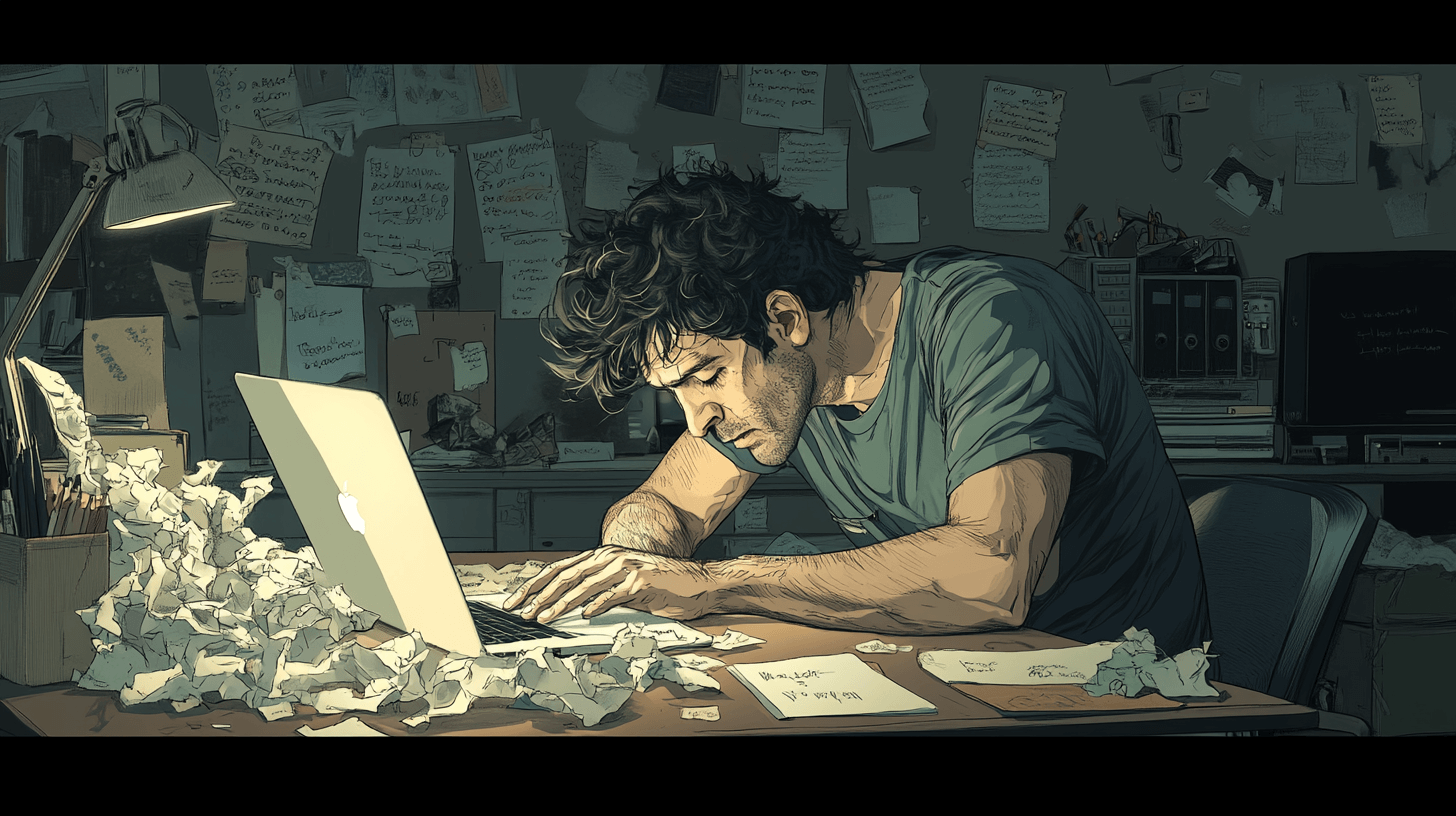“Every person is flawed in various ways. Every person makes choices that later become regrets.”
It’s easy to think that successful creators, entrepreneurs, or digital product builders have their lives and decisions perfectly in order—but the truth is, every single person is imperfect. We stumble. We overcommit. We miss deadlines. We say “yes” too many times and burn out. We launch things before they’re ready. At the time, these choices feel like solid decisions… but sometimes they become regrets later on.
That’s okay. Real life happens. When we shift our perspective, those “failures” or regrets become a treasure trove of lessons. In this blog post, we’ll explore why embracing flaws and regrets is essential, how to reframe them into positive fuel, and practical steps to integrate these lessons into your creator life (and mine!).
1. Why Flaws and Regrets Are Inevitable (and Valuable)
All human beings are fallible. We have biases, blind spots, and limitations. We’re not machines—yet in the online creator world, there’s a pressure to “be perfect.” Flaws and regret often come from doing our best with limited information, high stress, or conflicting demands. Recognizing this humanity is the first step toward self‑compassion.
So why do regrets matter?
Every regret is a signal: it highlights where our values leaned away from our actions, where knowledge didn’t match our ambition, or where we ignored limits. As creators, regrets teach us:
-
Where we mismatched our commitment and capacity.
-
What assumptions we made that didn’t hold.
-
What we prioritized at the expense of other priorities.
-
When we rushed instead of refining.
Viewed as data, not as shame, regrets become insight—fuel for smarter decisions next time.
2. Reframing Regret: From Shame to Self‑Coaching
Instead of saying, “I messed up,” try this shift:
-
Regret → Reflection
-
Shame → Self‑Coaching
Ask: “If I were coaching a friend in my shoes, what advice would I give?” You’d likely speak kindly, analyze what went wrong, highlight what went well, and sketch a better path. Use the same empathy for yourself.
Example:
You launched a course before testing. Early users pointed out major issues. Instead of beating yourself up, try:
-
What data did I miss? (Perhaps you skipped beta testing?)
-
What did work well? (Maybe your marketing was strong, or people liked one module.)
-
What’s next? (Offer a small free cohort to iterate, or add a launch bump with improvements.)
That’s coaching, not criticism.
3. A Positive Path Forward: 4 Actionable Steps
-
Record Your Regret, Frame it
Create a “Regret Log.” Under each entry:-
What happened?
-
What did I want at the time?
-
What did I learn afterward?
Keeping this record helps you recognize patterns and shine light on hidden assumptions.
-
-
Extract Concrete Lessons
Take each regret and drill down:-
Missed deadlines → I underestimated scope.
-
Overpromising → I didn’t ask my calendar first.
-
Skipped feedback → I valued speed over refinement.
Turn these into specific principles: “Always map each module’s time requirement before launching” or “Schedule review checkpoints with stakeholders.”
-
-
Adjust Workflow and Habits
Bake your lessons into routines:-
Before launching, block time for user testing.
-
Use a simple time‑blocking tool to compare promises vs. available hours.
-
Map out a pre‑launch checklist that includes feedback reviews.
These habits keep regrets from repeating.
-
-
Share Your Lessons Publicly
Vulnerability builds trust—and teaching the lesson helps you internalize it. Write a tweet:“Launched too fast last week, users found major bugs. I realized I skipped beta testing. Lesson: schedule a closed beta group before any big launch—two weeks minimum.”
Or pen a LinkedIn post sharing what went wrong and how you’re fixing it. Your transparency helps your brand—and your own accountability.
4. Case Example: A Creator’s Transformation Journey
Meet Emma, a digital workbook creator.
Emma dreamed of launching six workbooks in 2024. She created content at lightning speed and hit “Publish” on expensive packages… before doing final reviews or trial runs. Result? Downloads came slow, users reported typos, and refunds started rolling in.
At first, Emma wanted to hide her results. She felt embarrassed. But instead, she took a different route:
-
She documented what went wrong: rushing, no beta testers, missed typos.
-
Extracted lessons: slowing down, creating a peer review group, doing small test launches.
-
Changed workflow: built a rolling cycle—draft, peer review, 2‑week beta, launch.
-
Crafted a post: “I botched my workbook launch, here’s why—and how I’m fixing it.” That post went viral in her niche, earning her 500+ email subscribers and rebuilding her brand.
From regret rose renewed alignment between her desire for impact and the execution structure to deliver it.
5. Embracing Imperfection as a Brand Strategy
In the world of digital business, your authenticity is your advantage. Flaws and missteps humanize you. They build trust—even if you feel uncomfortable sharing them.
-
Case study style: share a project that failed and how you rebelled back.
-
Email series: “Confessions of a coach” or “What I wish I’d known before launching.”
-
Live Q&A: explain live what went sideways and how you pivoted.
Remember, audiences don’t expect perfection. They crave connection. And the strongest connections come from shared struggles and growth.
6. Anchoring Every Lesson with Action
It’s easy to nod at this advice. The key is embedding it. Here’s your action sheet:
| Regret | What’s the lesson? | Next Action |
|---|---|---|
| Rushed launch → bugs | Beta testing saves reputation | Create a beta group within 1 month |
| Missed emails → confusion | Clear comms prevent frustration | Map out email funnel and deadlines |
| No feedback on copy | Copy needs fresh eyes | Hire a peer reviewer per launch |
| Burnout from over-commitments | Our time is finite | Use a time‑block method before client commitments |
Making small tweaks like these builds trust, saves your sanity, and ensures your next launch is stronger.
7. Conclusion: Regrets as Guides, Not Anchors
We all have regrets. Every creator’s journey spirals through decisions we’d redo—if we only knew then what we know today. But regrets aren’t roadblocks; they’re signposts. They mark where our internal compass nudged us off course, and invite us to recalibrate.
As an online creator, lean into your humanity:
-
Document your mistakes.
-
Learn deeply.
-
Adjust your structures.
-
Share your wisdom.
-
Always show up again—with more courage, insight, and heart.
Every researcher who’s discovered gold begins in a failed expedition. Every chef who’s perfected a recipe endured burnt sauce. Your regrets are proof you’re trying. That matters more than the outcome ever could.
So write that blog post. Ship that course. Publish that template. If a few things don’t land—good. Now you have more to learn, adapt, improve—and ultimately win.
( This post was made with the help of my GPT ‘Quote To Action’ which is available here)






